Photographs: Amit Dave/Reuters Vivek Dehejia
As Narendra Modi inches closer to becoming the Bharatiya Janata Party’s prime ministerial candidate, the predictably polarised commentary in the media has been arriving thick and fast. Depending on whom one reads, Modi is either the architect of the “Gujarat miracle” and saviour-in-waiting for India, or a snake oil huckster with a well-honed publicity machine.
Cut through the rhetoric and the real questions emerge: Is Modi really the pro-free market politician that his supporters make him out to be? And, even if he is, will he be able to implement meaningful economic reforms if he does get the big chair?
...
Is Narendra Modi an economic reformer?
Image: Modi prefers to duck the issue of unfinished reform agenda.Photographs: Amit Dave/Reuters
On the first question, the answer depends on how much stock one puts in platitudes about “maximum governance and minimum government”. Initially music to the ears of economic liberals, when such catch-all, throwaway phrases are interminably repeated, the melody becomes tiresome.
More pointedly, on vexed debates at the heart of the unfinished reform agenda, Modi prefers to duck the issue rather than take a principled stand. Arguing that labour laws, for instance, should be moved from the concurrent to the state list is a clever and cheap way to appear as a economic reformer and constitutional federalist, while not investing any political capital in what is sure to be a doomed exercise.
...
Is Narendra Modi an economic reformer?
Image: Can Modi turn into the economist's dream reformer?Photographs: Amit Dave/Reuters
Listen more closely, then, and the dissonance between would-be economic reformer and hard-nosed political pragmatist becomes acute. Perhaps, though, it’s unfair to judge Modi’s views on national economic policy from the limited public pronouncements he’s made to date.
Nor, as chief minister of a state, can he be faulted for asking for a bigger share of the central entitlement pie, and it wouldn’t be right to conclude on this basis that he’s in favour of the panoply of such central schemes. Rather, as time unfolds and he articulates his vision for the BJP’s election campaign, might Modi turn into the economist’s dream reformer?
...
Is Narendra Modi an economic reformer?
Image: What, precisely, would he be able to accomplish?Photographs: Amit Dave/Reuters
Let’s leave aside one’s natural scepticism that a wily politician who’ll tilt to where the votes are will morph in the next few months into an idealistic crusader for the free market, who’ll thump down a well-worn copy of Friedrich Hayek with the words “this is what we believe”, and proceed to lay out a radical agenda for deregulation and privatisation that aims to sweep away the encrusted residue of the licence raj.
Suppose instead, and for the sake of argument, that this unlikely scenario plays out, and Modi’s body is inhabited by former UK Prime Minister Margaret Thatcher’s ghost. What, precisely, would he be able to accomplish?
...
Is Narendra Modi an economic reformer?
Image: Reform in India has occurred in the aftermath of a crisis.Photographs: Amit Dave/Reuters
This is where fervid rhetoric - on both sides of the debate - demands a reality check. For, apart from a few years after 1991 and another few years after the National Democratic Alliance came to power in 1998, there has never been a political equilibrium in India in favour of sweeping economic reform.
As I and many others have argued, reform in India, as elsewhere, has occurred in the aftermath of a crisis, and never in its anticipation.
...
Is Narendra Modi an economic reformer?
Image: Volatile and still plunging rupee is great fodder for dinner table conversation.Photographs: Amit Dave/Reuters
In a still largely rural, and poor, polity, the hard political fact is that votes mostly lie in redistribution and welfare, not in forward-looking, growth-enhancing, poverty-reducing policies that would take years to reap political dividends, longer than the time horizon of any normal politician. (This common sense idea is supported formally by what goes under the fancy name of the “median voter theorem”.)
While the volatile and still plunging rupee is great fodder for dinner table conversation by the economically illiterate who assume that a “strong” currency must be “good” and a “weak” currency must be “bad”, no serious analyst expects India to experience a macro-economic or foreign exchange crisis of the magnitude that forced our political class to launch reforms at the point of a gun in 1991.
...
Is Narendra Modi an economic reformer?
Image: There is much to lose, and little to gain, by upsetting a status quo.Photographs: Amit Dave/Reuters
There is, therefore, little likelihood that pushing forward the economic reform agenda - all but moribund under the United Progressive Alliance - will become a political necessity for a Modi-led BJP, even if they do come to power on the back of an election campaign messaged on “good governance”.
Rather, there is much to lose, and little to gain, by upsetting a status quo that benefits all entrenched, incumbent parties. This is at least as salient as the usual observation that coalition compulsions and the federal nature of India’s politics would constrain a reform-minded Modi.
...
Is Narendra Modi an economic reformer?
Image: The term 'good governance' is itself a porous umbrella for all manner of public policies.Photographs: Amit Dave/Reuters
What is more, the deliberately vague and imprecise term, “good governance”, that has attached itself to Modi’s persona like a barnacle, is itself a porous umbrella for all manner of public policies, ranging from Modi’s futurist zeal for a technological solution to every problem under the sun, on the one hand, to an emphasis on (apparently) micro-managing from the CM’s office the erection of every lamp standard on every Ahmedabad street, on the other.
...
Is Narendra Modi an economic reformer?
Image: Modi's managerial mania in itself bodes ill for the prospect of a genuine turn towards reform.Photographs: Amit Dave/Reuters
Finally, Modi’s managerial mania in itself bodes ill for the prospect of a genuine turn towards reform. After all, in a well-functioning market economy, what’s there left to manage?
These are the sorts of questions those who see in Modi a messiah for “Centre Right” economic policies ought to start asking. Else, they might eventually discover, to their chagrin, that their idol has feet of clay.
The writer is an economics professor at Carleton University in Ottawa, Canada, and is co-author of Indianomix: Making Sense of Modern India (Random House India, 2012).

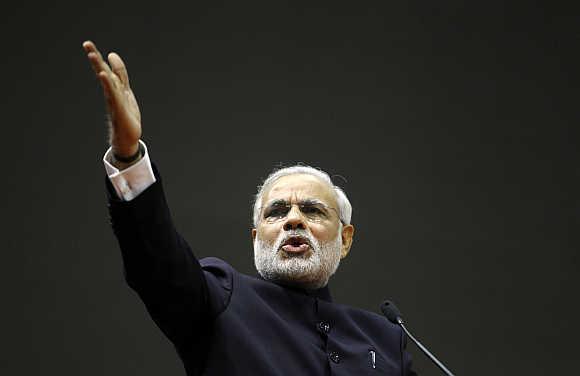
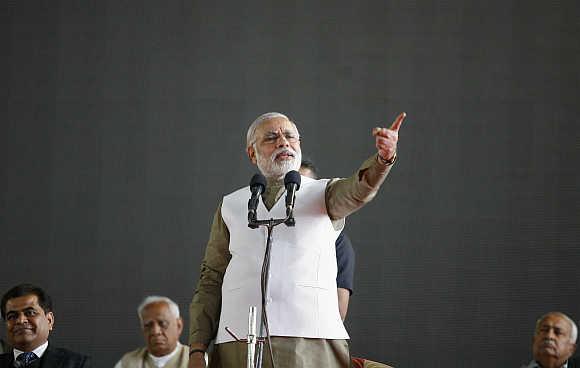
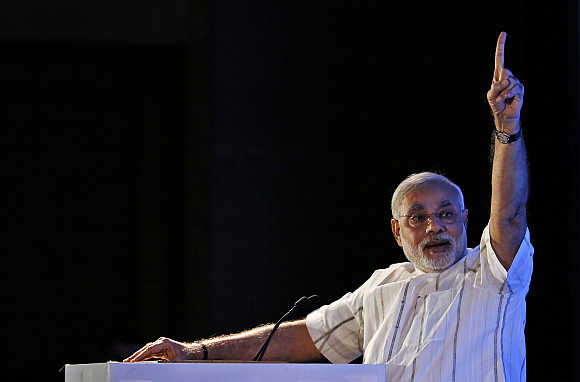
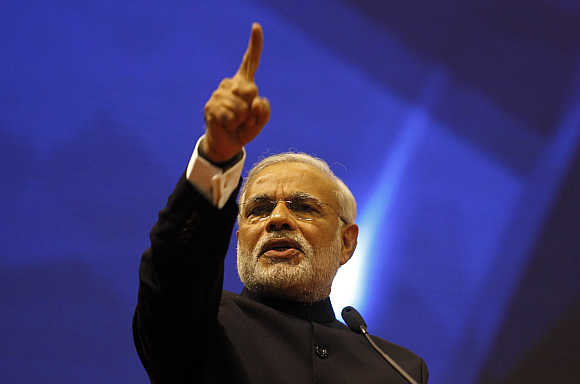
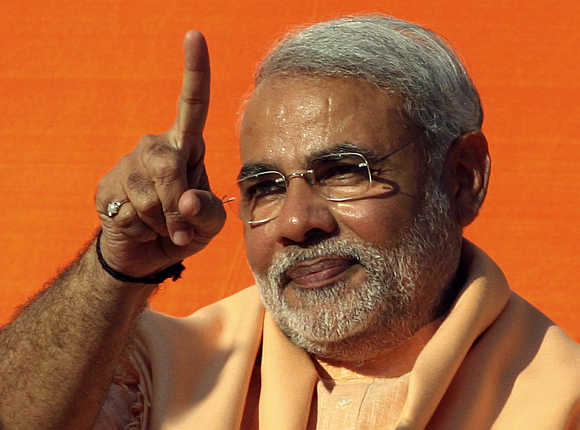
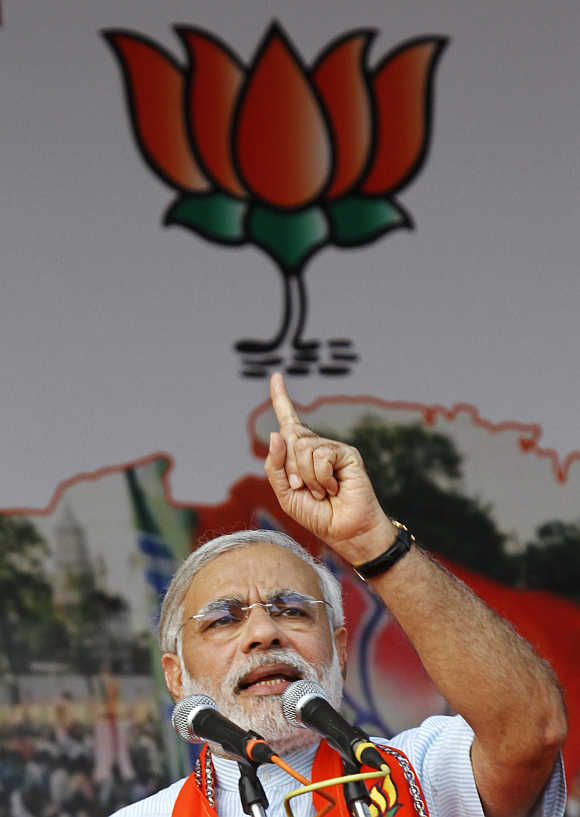
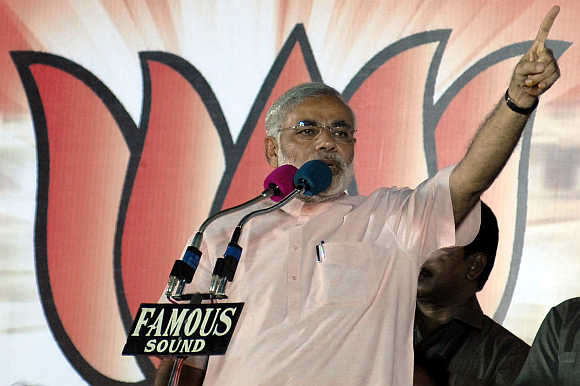
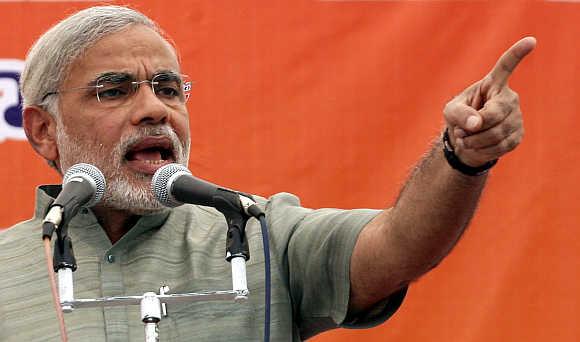
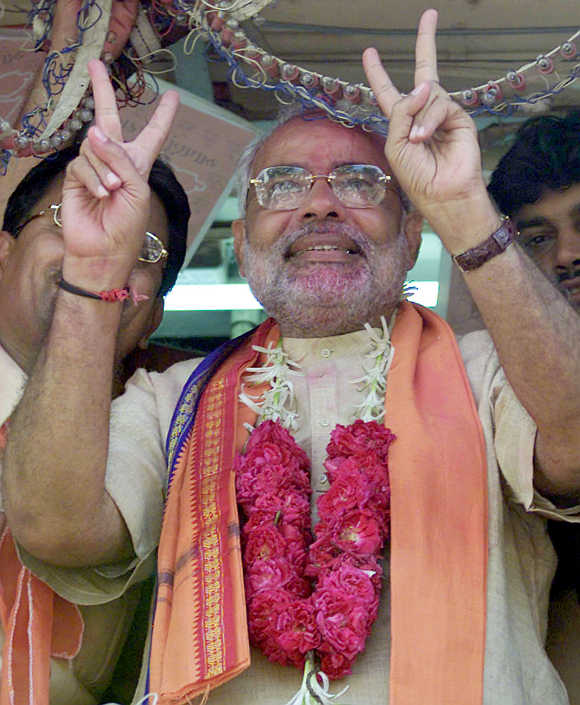

article